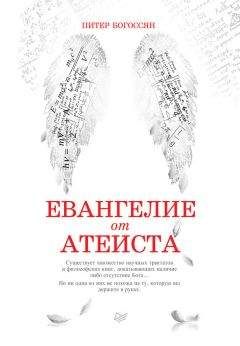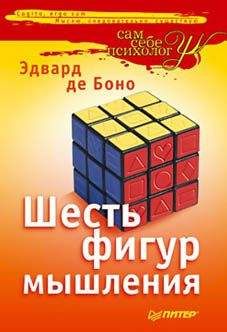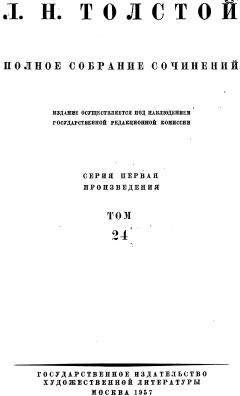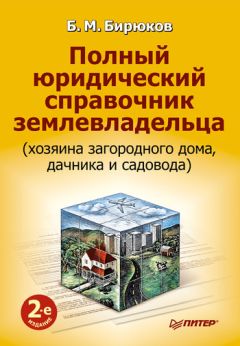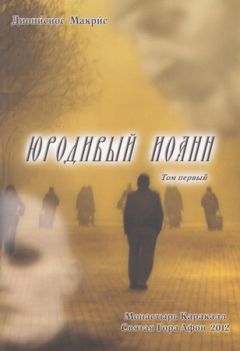Brodie, R. (1996). Virus of the mind: The new science of the тете. Carlsbad, CA: Hay House, Inc.
Brown, S. (2012, October 2). The 10 most dangerous religious right organizations. Network for Church Monitoring. URL: http://www.alternet.org/belief/10-most-dangerous-religious-right-organizations
Brutus, S. (2012). Religion, Culture, History: A Philosophical Study of Religion. Portland, OR: Daimonion Press.
Carrier, R. (2012). Atheism IS an Identity. URL: http://freethoughtblogs.com/carrier/archives/337/
CBS News. (2012, August 16). More Americans identifying as atheists. URL: http://www.cbn.com/cbnnews/us/2012/August/More-Americans-Identifying-as-Atheist/
CDC. (2012). Centers for Disease Control and Prevention. URL: http://www.cdc.gov/24–7/CDCFastFacts.html
Chambers, A. (2009). Eats with sinners: Reaching hungry people like Jesus did. Cincinnati, OH: Standard Pub.
Christian, J.L. (Ed.). (2011). Philosophy: An introduction to the art of wondering. (11th ed., pp. 51). Boston, MA: Wadsworth.
Christina, G. (2012). Why are you atheists so angry? 99 things that piss off the Godless. Charlottesville, A: Pitchstone.
Clarke, M.L. (1968). The Roman mind: Studies in the history of thought from Cicero to Marcus Aurelius . New York, NY: W.W. Norton & Company, Inc.
Clark, С.M. (1992). Deviant adolescent subcultures:
Assessment strategies and clinical interventions. Adolescence, 27(106), 283.
Clifford, W. (2007). The ethics of belief. In D. Basinger, W. Hasker, M. Peterson & B. Reichenbach (Eds.), Philosophy of religion: Selected readings (3rd ed., pp. 104–109). New York, NY: Oxford University Press, Inc.
CNN. (2008). Election exit polls. URL: http://www.cnn.com/ELECTION/2008/results/polls/
Comfort, R. (2009). You can lead an atheist to evidence, but you can’t make him think. Los Angeles, CA: WorldNetDaily.
Coffey, С (2009). ,4s / see it. Bloomington, IN: AuthorHouse.
Covey, S.R. (2004). The 7 habits of highly effective people. New York, NY: Free Press.
Cragun, R., Yeager, S., & Vega, D. (2012). How secular humanists (and everyone else) subsidize religion in the United States. Free Inquiry, 32(4). URL: http://www.secularhumanism.org/index.php?section=fi&page=cragun_32_4
Craig, W.L. (ad.). Christian apologetics: Who needs it? Reasonable Faith. URL: http://www.reasonablefaith.org/christian-apologetics-who-needs-it
Craig, W.L. (2003). Hard questions, real answers, (pp. 35). Wheaton, IL: Crossway Books.
Curtis, J.Т., Silberschatz, G., Sampson, H., Weiss, J., & Rosenberg, S.E. (1988).
Developing reliable psychodynamic case formulations: An illustration of the plan diagnosis method. Psychotherapy: Theory, Research, Practice, Training, 25(2), 256–265.
Dacey, A. (2012). The future of blasphemy: Speaking of the sacred in an age of human rights. London: Continuum
Davis, R. (2012, February 28). Apology for Afghan Quran burning was right. The Daily Athenaeum. URL: http://issuu.com/dailyathenaeum/docs/20122902
Dawkins, R. (Performer). (2005). Richard Daw kins: Why the universe seems so strange. [Web Video]. URL: http://www.ted.com/talks/richard_dawkins_on_our_queer_universe.html
Dawkins, R. (2006a). The god delusion. London, England: Bantam Press.
Dawkins, R. (2006b). Why I Won’t Debate Creationists. The Richard Dawkins Foundation for Reason and Science. URL: http://old.richarddawkins.net/articles/119-why-i-won-39-t-debate-creationists
Dawkins, R. (2007, October). In WH. Pryor (Moderator) debate between Richard Dawkins and John Lennox. The God delusion debate, Birmingham, AL. URL: http://old.richarddawkins.net/audio/1707-debate-between-richard-dawkins-and-john-lennox
Dawkins, R., & McKean, D. (2011). The magic oj reality: How we know what’s really true. New York, NY: Free Press.
Dennett, D. (2007). Breaking the spell: Religion as a natural phenomena. New York, NY: Penguin Group.
Dennett, D., & LaScola, L. (2010). Preachers who are not believers. Evolutionary Psychology, 8(1), 121–50.
DeWitt, J., & Brown, E. (2013). Hope after faith: An ex-pastor ‘s journey from belief to atheism. Cambridge, MA: Da Capo Press.
DiClemente, С. С, & Prochaska, J.O. (1998). Toward a comprehensive, transtheoretical model of change: Stages of change and addictive behaviors. In W.R. Miller & N. Heather (Eds.) Treating Addictive Behaviors (2nd ed.) (pp. 3–24). New York, NY: Plenum Press.
Doumit, P.E. (2010). A unification of science and religion. Pittsburg, PA: RoseDog Books.
Dozier, V. (2006). C.L. Shattuck & EH. Thompsett (Eds.), Confronted by God: The essential Verna Dozier (pp. 118). New York, NY: Church Publishing Inc.
Dubrow-Eichel, S.K. (1989). Deprogramming: An investigation of change processes and shifts in attention and verbal interactions (pp. 43–49, 52–53, 182–216). Philadelphia, PA: University Of Pennsylvania.
Dye, J. (2007, February 7). Socratic method and scientific method. URL: http://www.niu.edu/~jdye/method.html
Earley, D., & Wheeler, D. (2010). Evangelism is …: How to share Jesus with passion and confidence. Nashville, TN: B&H Academic Publishing Group.
Edwards, J.W. (1984). Indigenous Кого, a genital retraction syndrome of insular Southeast Asia: A Critical Review. Culture, Medicine and Psychiatry, 8, 1–24.
Erikson, J.A. (1992). Adolescent religious development and commitment: A structural equation model of the role of family, peer group, and educational influences. Journal for the Scientific Study of Religion, 37(2), 131–152.
Faccini, L. (2009). The incredible case of the shrinking penis: A Koro-like syndrome in an [sic] person with intellectually disability. Sexuality and Disability, 27(3), 173–178. doi:10.1007/slll95–009–9120–5
Falk, R. (2012, March 9). Koran burning in Afghanistan: Mistake, crime, and metaphor. [Web log message]. URL: http://richardfalk.wordpress.com/2012/03/09/koran-burning-in-afghanistan-mistake-crime-and-metaphor/
Faircloth, S. (2012). Attack of the theocrats! How the religious right harms us all—and what we can do about it. Charlottesville, VA: Pitchstone.
Fish, S. (2007, June 17). Atheism and evidence. [Web log message]. URL: http://opinionator.blogs.nytimes.com/2007/06/17/atheism-and-evidence/
Foerst, A. (2001). Do androids dream of bread and wine? In W. Richardson & G. Slack (Eds.). Faith in science: Scientists search for truth (pp. 197). New York, NY: Routledge.
Frankfurt, H.G. (2006). On truth. New York, NY: Alfred A. Knopf.
Frojan-Parga, M.X., Calero-Elvira, A., & Montano-Fidalgo, M. (2011). Study of the Socratic method during cognitive restructuring. Clinical Psychology & Psychotherapy, 18(2), 110–123.
Gal, D., & Rucker, D.D. (2010). When in doubt, shout!: Paradoxical influences of doubt on proselytizing. Psychological Science, 27(11), 1701–1707.
Gamponia, H.L. (2010). Great prescriptions to a better you. Pittsburgh, PA: RoseDog Books.
Gassner, S., Sampson, H., Weiss, J., & Brumer, S. (1982). The emergence of warded-off contents. Psychoanalysis and Contemporary Thought, 5(1), 55–75.
Gervais, W.M., & Norenzayan, A. (2012). Analytic thinking promotes religious disbelief. Science, 336(6080), 493–496. doi: 10.1126/science. 1215647
Grimley, D., Prochaska, J.O., Velicer, W.E., Blais, L.M., & DiClemente, С.С. (1994). The Transtheoretical Model of Change. In T.M. Brinthaupt & R.R. Lipka (Eds.). Changing the self: Philosophies, techniques, and experiences (pp. 201–228). Albany, NY: SUNY Press.
Gross, N., & Simmons, S. (2007). “The social and political views of American professors.” Unpublished manuscript, Harvard University, Cambridge, MA.
Haberrnas, G.R. (1996). The historical Jesus: Ancient evidence for the life of Christ. Joplin, MO: College Press Publishing Company, Inc.
Haberrnas, G.R. (1997). In defense of miracles: A comprehensive case for God’s action in history. Downers Grove, IL: InterVarsity Press.
Haberrnas, G.R., & Licona, M.R. (2004). The case for the resurrection of Jesus. Grand Rapids, MI: Kregel Publications.
Hallowell, B. (2012, May 15). A world without faith would be a world on the path to tragedy & disaster. The Blaze. URL: http://www.theblaze.com/stories/tony-blair-a-world-without-faith-would-be-a-world-on-the-path-to-tragedy-disaster/
Hanson, R. (1998, September 15). The great filter: Are we almost past it? URL: http://www.webcitation.org/5n7VYJBUd
Harris, A. (forthcoming). / Wonder.
Harris, S. (2004). The end of faith: Religion, terror and the future of reason. New York, NY: W.W. Norton & Company, Inc.
Harris, S. (2007, April 18). The empty wager [Web log message]. URL: http://newsweek.washingtonpost.com/onfaith/panelists/sam_harris/2007/04/the_cost_of_betting_on_faith.html
Harris, S. (2007b). Aspen Ideas Festival. URL: http://www.youtube.com/watch?v=KtN4-lwnHX4
Harrison, G.P. (2008). 50 reasons people give for believing in a god. Amherst, NY: Prometheus Books.
Harrison, G.P. (2013). 50 simple questions for every Christian. Amherst, New York: Prometheus Books.
Haught, J.F. (2008). God and the new atheism: A critical response to Dawkins, Harris, and Hitchens. Louisville, KY: John Knox Press.
Henriques, D.B. (2006a, October 11). Religion-based tax breaks: Housing to paychecks to books. The New York Times. URL: http://www.nytimes.com/2006/10/11/business/11religious.html?_r=2&oref=slogin&pagewanted=all
Henriques, D.В. (2006b, October 9). Where faith abides, employees have few rights. New York Times. URL: http://www.nytimes.com/2006/10/09/business/09religious.html?pagewanted=all
Hitchens, С (1995). The missionary position: Mother Teresa in theory and practice. London: Verso.
Hitchens, С (2007). The portable atheist: Essential readings for the nonbeliever. Philadelphia, PA: Da Capo.
HOfele, A., & Laque, S. (Eds.). (2011). Humankinds: The renaissance and its anthropologies. Berlin/New York: Walter de Gruyter GmbH.
Hoge, D.R., Petrillo, G., & Smith, E. (1982). Transmission of religious and social values from parents to teenage children. Journal of Marriage and the Family, 44, 569–579.
Holt, J. (2012, August 2). The basic question: Why does the world exist? The New York Times. URL: http://www.nytimes.com/2012/08/05/books/review/why-does-the-world-exist-by-jim-holt.html?pagewanted=all
Horowitz, L.M., Sampson, H., Siegelman, E.Y., Weiss, J., & Goodfriend, S. (1978). Cohesive and dispersal behaviors: Two classes of concomitant change in psychotherapy. Journal of Consulting and Clinical Psychology, 46(3), 556–564.
Horvath, А.О., & Luborsky, L. (1993). Journal oj Consulting and Clinical Psychology, 67(4), 561–573. doi:10.1037/0022–006X.61.4.561 Iannaccone, L.R. (1990). Religious practice: A human capital approach. Journal for the Scientific Study of Religion, 29, 297–314.
Jacobsen, K.A. (2011). Yoga powers: Extraordinary capacities attained through meditation and concentration. Leiden, Netherlands: Brill.
James, W. (1897). The will to believe: And other essays in popular philosophy. New York, NY: Longmans Green and Co.
Jaschik, S. (2012, October 24). Survey finds that professors, already liberal, have moved further to the left. Inside Higher Ed. URL: http://www.insidehighered.com/news/2012/10/24/surveyfinds-professors-already-liberal-have-moved-further-left
Johnson, N. (2001). Living with diabetes: Nicole Johnson, Miss America 1999. Washington, DC: LifeLine Press.
Jones, J.M. (2011, July 8). In U.S., 3 in 10 say they take the Bible literally. Gallup. URL: http://www.gallup.com/poll/148427/say-bible-literally.aspx
Kahneman, D. (2011). Thinking, fast and slow. New York, NY: Farrar, Straus and Giroux.
Keohane, J. (2010, July 11). How facts backfire: Researchers discover a surprising threat to democracy. Boston Globe. URL: http://www.boston.com/bostonglobe/ideas/articles/2010/07/11/how_facts_backfire/
Kim, B. (1979). Religious deprogramming and subjective reality. Sociological Analysis, 40(3), 197–207.
